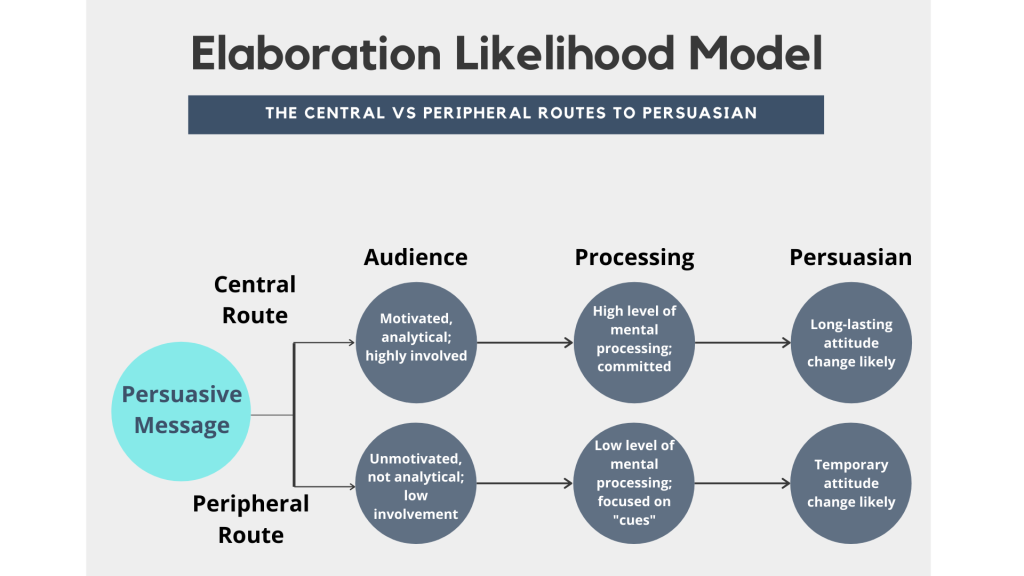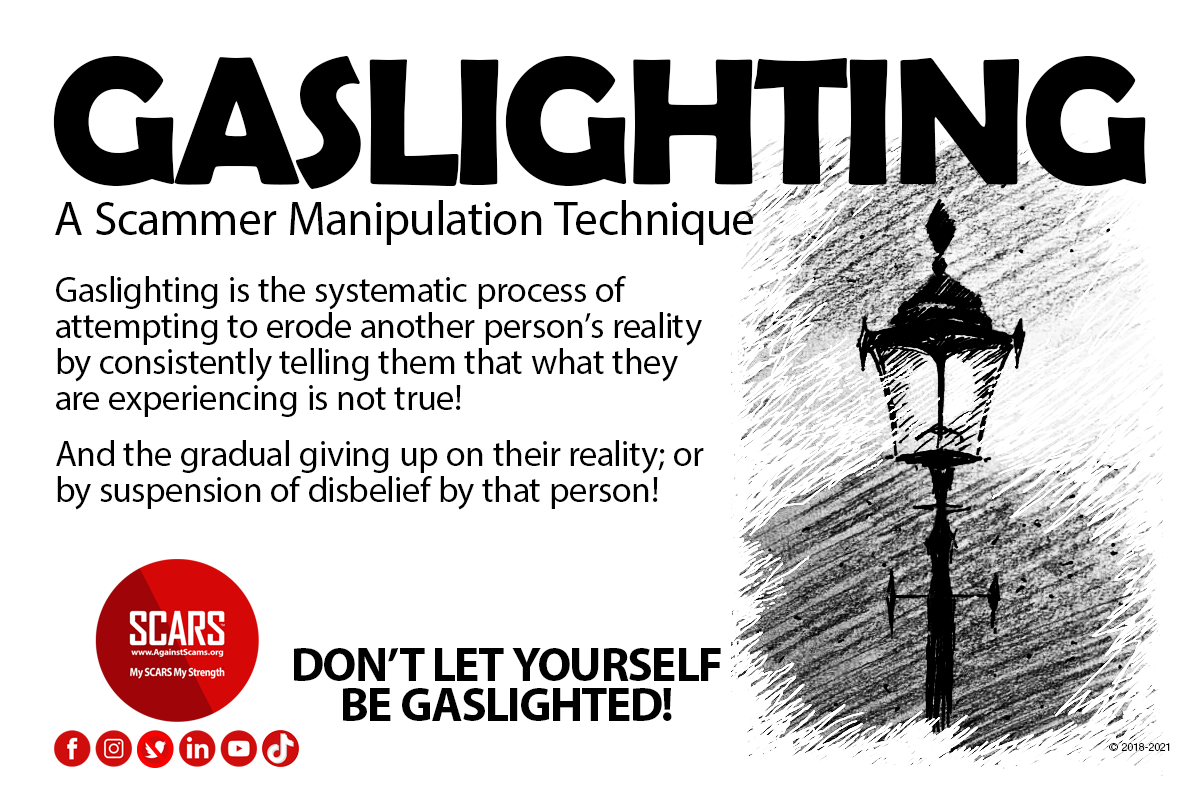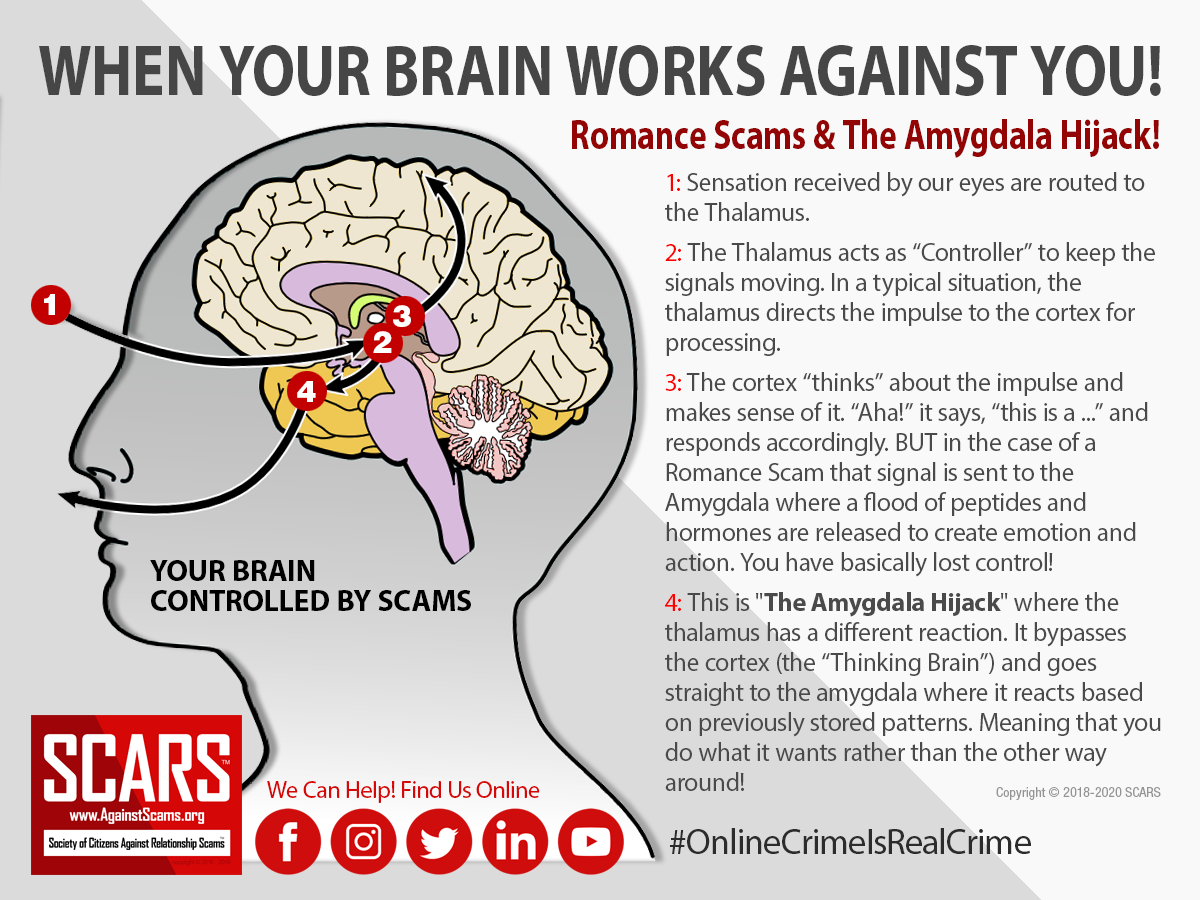Authors:
• Tim McGuinness, Ph.D. – Anthropologist, Scientist, Director of the Society of Citizens Against Relationship Scams Inc.
• Vianey Gonzalez – Psychologist, Certified Deception Professional, Psychology Advisory Panel & Director of the Society of Citizens Against Relationship Scams Inc.
Scammers Learn A Whole Toolkit Full Of Psychological Manipulation Techniques! Paradoxical Persuasion Is One That Can Be Very Effective!
What is Paradoxical Persuasion?
Paradoxical persuasion is a persuasion technique that uses seemingly contradictory or illogical statements to influence people’s beliefs or behavior. It is based on the idea that people are more likely to be persuaded by messages that are unexpected or thought-provoking.
Paradoxical persuasion can be used in a variety of contexts, such as advertising, marketing, and psychotherapy. For example, a company might use paradoxical persuasion to advertise a product by claiming that it is the “best-selling product that nobody buys.” This statement is contradictory, but it is also attention-grabbing and may make people more likely to learn more about the product.
Another example of paradoxical persuasion is the use of reverse psychology. Reverse psychology is a technique where you tell someone to do the opposite of what you want them to do in order to get them to do what you want them to do. For example, a parent might tell their child not to eat their cookies in order to make them want to eat their cookies more.
Paradoxical persuasion can be an effective way to influence people, but it is important to use it carefully. If used incorrectly, it can backfire and make people more resistant to persuasion.
Here are some tips for using paradoxical persuasion effectively:
- Make sure your message is clear and concise.
- Be unexpected and thought-provoking.
- Use humor or irony to make your message more engaging.
- Be credible and trustworthy.
- Use paradoxical persuasion sparingly.
It is also important to note that paradoxical persuasion is not a magic bullet. It is only one of many persuasion techniques that are used to influence scam victims.
The Theory behind Paradoxical Persuasion
Paradoxical persuasion is a persuasion technique that uses seemingly contradictory or illogical statements to influence people’s beliefs or behavior. It is based on the idea that people are more likely to be persuaded by messages that are unexpected or thought-provoking.
There are a few different theories about how paradoxical persuasion works. One theory is that it causes people to think more deeply about the issue at hand. When people are presented with a paradoxical statement, they have to stop and think about it in order to make sense of it. This process of thinking can make people more open to persuasion.
Another theory is that paradoxical persuasion works by creating a sense of cognitive dissonance. Cognitive dissonance is a state of discomfort that occurs when people hold two conflicting beliefs or attitudes. When people are presented with a paradoxical statement, it can create a state of cognitive dissonance. In order to reduce this discomfort, people may be more likely to change their beliefs or attitudes to align with the paradoxical statement.
Paradoxical persuasion can also work by appealing to people’s emotions. For example, a paradoxical statement may make people feel curious, amused, or even challenged. These emotions can make people more likely to pay attention to the message and be persuaded by it.
Paradoxical persuasion can have a number of effects on the brain. One effect is that it can increase activity in the prefrontal cortex. The prefrontal cortex is the part of the brain that is responsible for higher-order cognitive functions, such as planning, decision-making, and problem-solving. When the prefrontal cortex is more active, people are more likely to think critically about the information they are presented with and to be persuaded by messages that are well-reasoned.
Another effect of paradoxical persuasion is that it can increase the release of dopamine in the brain. Dopamine is a neurotransmitter that is associated with pleasure and reward. When people are exposed to a paradoxical statement, it can release dopamine in the brain, which can make them more likely to be persuaded by the message.
Paradoxical persuasion can be a very effective way to influence people’s beliefs and behavior.
Examples of how Paradoxical Persuasion works in real life
- A parent might tell their child not to eat their cookies in order to make them want to eat their cookies more. This is because the child is more likely to be intrigued by the forbidden fruit and want to do the opposite of what they are told.
- A company might advertise a product by claiming that it is the “best-selling product that nobody buys.” This statement is contradictory, but it is also attention-grabbing and may make people more likely to learn more about the product.
- A salesperson might tell a customer that they are not trying to sell them anything, even though they are. This can lower the customer’s defenses and make them more receptive to the salesperson’s message.
- A therapist might use paradoxical persuasion to help a client with anxiety. For example, the therapist might tell the client to “be more anxious” or to “embrace their anxiety.” This can help the client to see their anxiety in a different light and to reduce their fear of it.
- A politician might use paradoxical persuasion to get elected. For example, a politician might say something like, “I’m not a politician. I’m just a regular person who wants to make a difference.” This can make the politician seem more relatable and trustworthy to voters.
How Paradoxical Persuasion is used in the commission of Scams and Fraud
Paradoxical persuasion can be used in the commission of scams and fraud in a number of ways. It is typically used as a part of gaslighting and other methods.
Here are a few examples:
- To create a sense of urgency. Scammers may use paradoxical persuasion to create a sense of urgency and make their victims feel like they need to act quickly or they will miss out on a great opportunity. For example, a scammer might say something like, “This offer is only available for a limited time, so act now!” or “If you don’t invest in this opportunity today, you’ll regret it tomorrow!”
- To lower the victim’s defenses. Scammers may use paradoxical persuasion to lower the victim’s defenses and make them more susceptible to being scammed. For example, a scammer might say something like, “I’m not trying to scam you. I’m just trying to help you make money.” or “I’m not like other scammers. I’m honest and trustworthy.”
- To gain the victim’s trust. Scammers may use paradoxical persuasion to gain the victim’s trust and make them more likely to believe their claims. For example, a scammer might say something like, “I’m not going to ask you for any money upfront. You can trust me.” or “I’m not going to pressure you into anything. You can take your time and think about it.”
Romance scammers use paradoxical persuasion to control their victims in a number of ways, including:
- Creating a sense of urgency and excitement. Romance scammers often create a sense of urgency and excitement in their victims by telling them that they are in love with them and that they need to be together. They may also tell their victims that they are leaving the country soon or that they are in danger and need money. This sense of urgency can make victims more likely to make rash decisions and give the scammers money or personal information.
- Isolating their victims from friends and family. Romance scammers often try to isolate their victims from their friends and family. They may do this by making the victims feel like their friends and family don’t understand their relationship or that they are jealous of the victim’s happiness. By isolating their victims, romance scammers can make them more vulnerable to their control. This is a part of the Gaslighting manipulation.
- Using guilt and shame to manipulate their victims. Romance scammers may use guilt and shame to manipulate their victims into doing what they want. For example, they may tell their victims that they are being selfish or that they don’t love them enough if they don’t give them money or personal information. This can make victims feel ashamed and guilty, and it can make them more likely to comply with the scammer’s demands.
- Using paradoxical language to keep their victims off balance. Romance scammers often use paradoxical language to keep their victims off balance and to make them more susceptible to persuasion. For example, they may say things like, “I love you, but you have to prove your love for me by sending me money.” or “I trust you, but I need to see your bank account information to make sure you’re not a scammer.” This paradoxical language can make victims confused and disoriented, and it can make them more likely to believe the scammer’s lies.
Here are some specific examples of how romance scammers use paradoxical persuasion:
- A scammer tells their victim that they are the only person they can trust. This can make the victim feel isolated and dependent on the scammer.
- A scammer tells their victim that they love them unconditionally, but that they need to prove their love by sending them money. This is a classic example of paradoxical persuasion. It is designed to make the victim feel guilty and ashamed if they don’t send the scammer money.
- A scammer tells their victim that they are leaving the country soon and that they need money to pay for their travel expenses. This creates a sense of urgency and makes the victim more likely to send the scammer money without thinking twice about it.
Avoiding the Paradoxical Persuasion Technique
It is important to be aware of how paradoxical persuasion is used in scams and fraud.
If you are ever unsure about something, it is always best to err on the side of caution and walk away.
Here are some tips for protecting yourself from scams and fraud:
- Be skeptical of claims that seem too good to be true.
- Don’t feel pressured to make a quick decision.
- Talk to someone you trust about your concerns.
- Do your research before sending money, investing in anything, or giving out personal information that can be used against you.
More:
- What is the Purpose of Gaslighting? (romancescamsnow.com)
- Gaslighting – Destroying A Victim’s Sense Of Reality Or Truth [Updated] (romancescamsnow.com)
- The Amygdala Hijack! A SCARS™ Guide [Infographic][Updated] (romancescamsnow.com)
- Suggestibility – A Victim Vulnerability (romancescamsnow.com)
- Scammer Methods – A Scammer’s Primer – Part 3: The Steps – Grooming & Manipulation (romancescamsnow.com)
- Equivocation – The Magician’s Choice – The Arts Of Manipulation (romancescamsnow.com)
- Love Bombing And How Romance Scam Victims Are Forced To Feel (romancescamsnow.com)
- Conformity & Romance Scams And How It Affects Scam Victims 2023 (scamsnow.com)
- Shifting Baseline Syndrome (SBS) And Scam Awareness (scamsnow.com)
- 7 Psychological Principles of Scams (romancescamsnow.com)
- Rug-Pull – A Scammer Tactic (romancescamsnow.com)
- Social Delivery – Buying Your Affection (romancescamsnow.com)
- Save Me From A Life In Crime – Romance Scams (romancescamsnow.com)
- Living under Manipulation for Too Long Leaves Victims … (romancescamsnow.com)
SCARS Resources:
- Getting Started Right: ScamVictimsSupport.org
- Sextortion Scam Victims: Sextortion Victims Support – The Essentials (scamvictimssupport.org)
- For New Victims of Relationship Scams newvictim.AgainstScams.org
- Subscribe to SCARS Newsletter newsletter.againstscams.org
- Sign up for SCARS professional support & recovery groups, visit support.AgainstScams.org
- Join our Scam Survivors United Chat & Discussion Group facebook.com/groups/scam.survivors.united
- Find competent trauma counselors or therapists, visit counseling.AgainstScams.org
- Become a SCARS Member and get free counseling benefits, visit membership.AgainstScams.org
- Report each and every crime, learn how to at reporting.AgainstScams.org
- Learn more about Scams & Scammers at RomanceScamsNOW.com and ScamsNOW.com
- Scammer photos ScammerPhotos.com
- SCARS Videos youtube.AgainstScams.org
- Self-Help Books for Scam Victims are at shop.AgainstScams.org
- Donate to SCARS and help us help others at donate.AgainstScams.org
- Worldwide Crisis Hotlines: https://blog.opencounseling.com/suicide-hotlines/
Other Cyber Resources
- Block Scam Domains: Quad9.net
- Global Cyber Alliance ACT Cybersecurity Tool Website: Actionable Cybersecurity Tools (ACT) (globalcyberalliance.org) https://act.globalcyberalliance.org/index.php/Actionable_Cybersecurity_Tools_(ACT)_-_Simplified_Cybersecurity_Protection
- Wizer Cybersecurity Training – Free Security Awareness Training, Phishing Simulation and Gamification (wizer-training.com)
-/ 30 /-
What do you think about this?
Please share your thoughts in a comment below!
Do You Need Support?
Get It Now!
SCARS provides the leading Support & Recovery program for relationship scam victims – completely FREE!
Our managed peer support groups allow victims to talk to other survivors and recover in the most experienced environment possible, for as long as they need. Recovery takes as long as it takes – we put no limits on our support!
SCARS is the most trusted support & education provider in the world. Our team is certified in trauma-informed care, grief counseling, and so much more!
To apply to join our groups visit support.AgainstScams.org
We also offer separate support groups for family & friends too.
Become a
SCARS STAR™ Member
SCARS offers memberships in our STAR program, which includes many benefits for a very low annual membership fee!
SCARS STAR Membership benefits include:
- FREE Counseling or Therapy Benefit from our partner BetterHelp.com
- Exclusive members-only content & publications
- Discounts on SCARS Self-Help Books Save
- And more!
To learn more about the SCARS STAR Membership visit membership.AgainstScams.org
To become a SCARS STAR Member right now visit join.AgainstScams.org
To Learn More Also Look At Our Article Catalogs
Scam & Crime Types
More SCARS
- ScamsNOW Magazine – ScamsNOW.com
- ContraEstafas.org
- ScammerPhotos.com
- AnyScam.com – reporting
- AgainstScams.org – SCARS Corporate Website
- SCARS YouTube Video Channel
















Leave A Comment